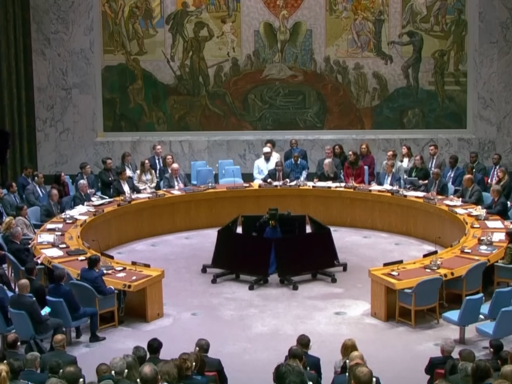The UN Security Council have approved a US draft resolution that, for the first time, includes explicit references to the possibility of developing a political process leading to the establishment of a Palestinian state. The proposal involves the implementation of a comprehensive reform plan within the Palestinian Authority institutions and tangible progress in the reconstruction of the Gaza Strip.
The resolution was supported by 13 countries, while Russia and China abstained from voting. The resolution provides for the establishment of a Peace Council to oversee the reconstruction of Gaza during the transitional phase, until the reform of the Palestinian Authority is completed.
The council aims to provide an environment capable of creating the conditions necessary for the realisation of the right to self-determination and the establishment of a Palestinian state. However, Hamas rebuffed the plans, claiming that the proposal does not consider the magnitude of Israel’s genocide in Gaza.
Gaza peace plan involves resumption of aid
The resolution emphasised the importance of resuming humanitarian aid to Gaza in full coordination with the Peace Council, stressing the need to use it for civilian purposes only and to ensure that it is not diverted from its intended purpose. The resolution also authorises participating states, in cooperation with the Peace Council, to establish operational entities with international powers to manage transitional governance in Gaza. The provision for these entities, is that they must operate under the authority of the Council and are funded by voluntary contributions and donors.
It also called on the World Bank and international financial institutions to support reconstruction efforts, including the establishment of a special fund for this purpose.
The resolution included the establishment of a temporary international stabilisation force operating under unified command and in coordination with Egypt and Israel, with key tasks including:
Disarming GazaProtecting civiliansTraining the Palestinian policeSecuring humanitarian corridors.
The resolution stated that as the stabilisation force expanded its presence and control on the ground, the Israeli army would begin withdrawing from the Gaza Strip according to pre-agreed criteria and timetable.
Monitoring commitments and international support
The Security Council urged states and international organisations to provide financial, logistical and human support to both the Peace Council and the Stabilisation Force to ensure the implementation of their tasks. The resolution also required the Peace Council to submit a biannual report on progress made in Gaza at the humanitarian, administrative and security levels. The resolution set the end of 2027 as the date for the end of the Peace Council’s mandate and the end of the international civil and security presence in the Strip.
During the voting session, the US representative said that the humanitarian situation in Gaza had reached ‘hell on earth’ levels over the past two years, warning that the international community was at a ‘crossroads’. He explained that the draft resolution was based on US President Donald Trump’s plan for Gaza, stressing that the draft was ‘not just a promise’ but included ‘clear guarantees for a ceasefire’. He stressed that any vote against the draft would mean, in his words, ‘voting in favour of a return to war’.
Hamas rejects the resolution and considers it international guardianship
For its part, Hamas announced its rejection of the resolution, considering that it does not meet the minimum political and humanitarian rights of the Palestinian people and does not reflect the magnitude of the tragedy that the Gaza Strip has witnessed over the past two years of war of extermination and crimes of occupation.
The movement affirmed in its statement that the resolution imposes a mechanism of international guardianship on Gaza and paves the way for its separation from the rest of the Palestinian geography. Instead, argue Hamas, such a proposal serves the goals of the occupation that it failed to achieve militarily, and constitutes a violation of the Palestinians’ right to self-determination and to establish their independent state with Jerusalem as its capital. Hamas stressed that the weapon of resistance is a legitimate right linked to the continuation of the occupation, and that any discussion about it must be an internal national matter linked to a political process leading to the end of the occupation.
Loss of claim to neutrality
It also warned that entrusting any international force with tasks that include disarming the resistance would cause it to lose its neutrality and turn it into a party biased towards the occupation. They stressed that any international force must limit its role to border control and monitoring the ceasefire, and must operate under the supervision of the United Nations only and in full coordination with Palestinian institutions. The movement affirmed that humanitarian aid and the opening of crossings are inherent rights that cannot be subject to political blackmail, emphasising the role of the United Nations and UNRWA in providing relief.
Hamas concluded its statement by calling on the international community to stop the genocide, begin reconstruction, end the occupation, and enable the Palestinian people to exercise their right to self-determination and establish their independent state with Jerusalem as its capital.
Featured image via YouTube screenshot/Al Jazeera English
By Alaa Shamali
From Canary via this RSS feed


